Best Places to Visit in Maryland

Searching for the best places to visit in Maryland? Well, you are in the right place! While living on the East Coast for 10 years and on our recent two week road trip, I've found that "The Old Line State" is totally worth exploring, from its lively waterfront cities to historic landmarks (and everything in between!).
This is exactly why I decided to share my favourite things in Maryland so that you can use my guide as an inspiration to plan your own road trip. My article is a long one because it includes (at least) 200 things to do in these areas, and I hope you love it too.
- My Favorite Places to Visit on the Eastern Shore of Maryland
- - #1. Assateague Island National Seashore - #2. Salisbury - #3. Wylder Hotel on Tilghman Island
- - #4. Brampton Inn, Chestertown - #5. Berlin - #6. St. Michaels
- My Favorite Places to Visit in Upper Chesapeake Bay & Northeast Maryland
- - #7. Havre de Grace - #8. Chesapeake City - #9. Ellicott City
- My Favorite Places to Visit in Central Maryland / DC Suburbs
- - #10. Baltimore - #11. Bethesda
- My Favorite Places to Visit in Southern Maryland
- #12. Waldorf - #13. Chesapeake Beach
- Best Day Trips in Western Maryland
- #14. Hagerstown - #15. Cumberland
My Favorite Places to Visit on the Eastern Shore of Maryland
I'm a great lover of beaches, so you can imagine that the Eastern Shore of Maryland is one of my favorite places to escape! Here are my must-visit spots that I hope you will love too.
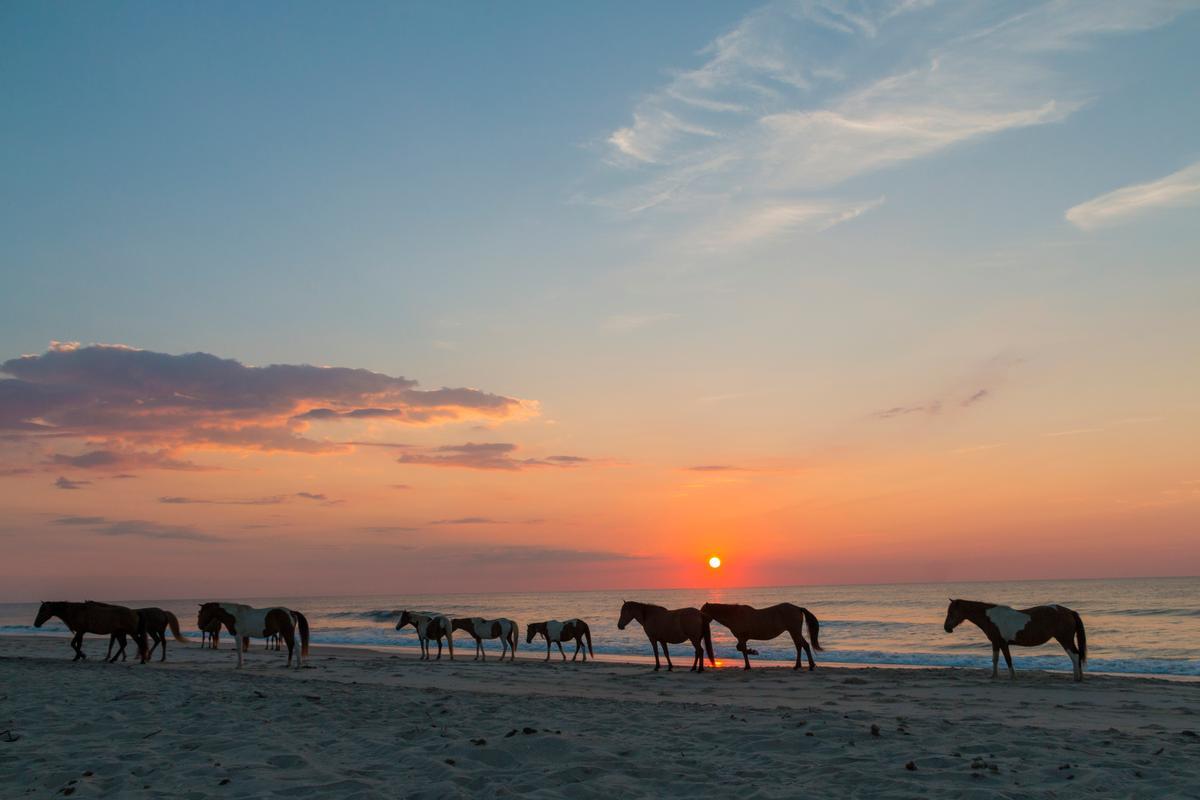
Assateague Island National Seashore
I absolutely love this wild stretch of barrier island with dunes and endless beaches, and, honestly, I think that this is one of the most magical places on the East Coast for a beach vacation!
After about a 20-minute drive from Berlin, I arrived at a place that was pure coastal wilderness.
During two nights of camping beneath the stars, I walked along the Life of the Dunes and Life of the Marsh trails, and kayaked through quiet coves alive with herons and osprey.
Strolling down the wide, windswept beaches where the ponies wander freely was my personal highlight.
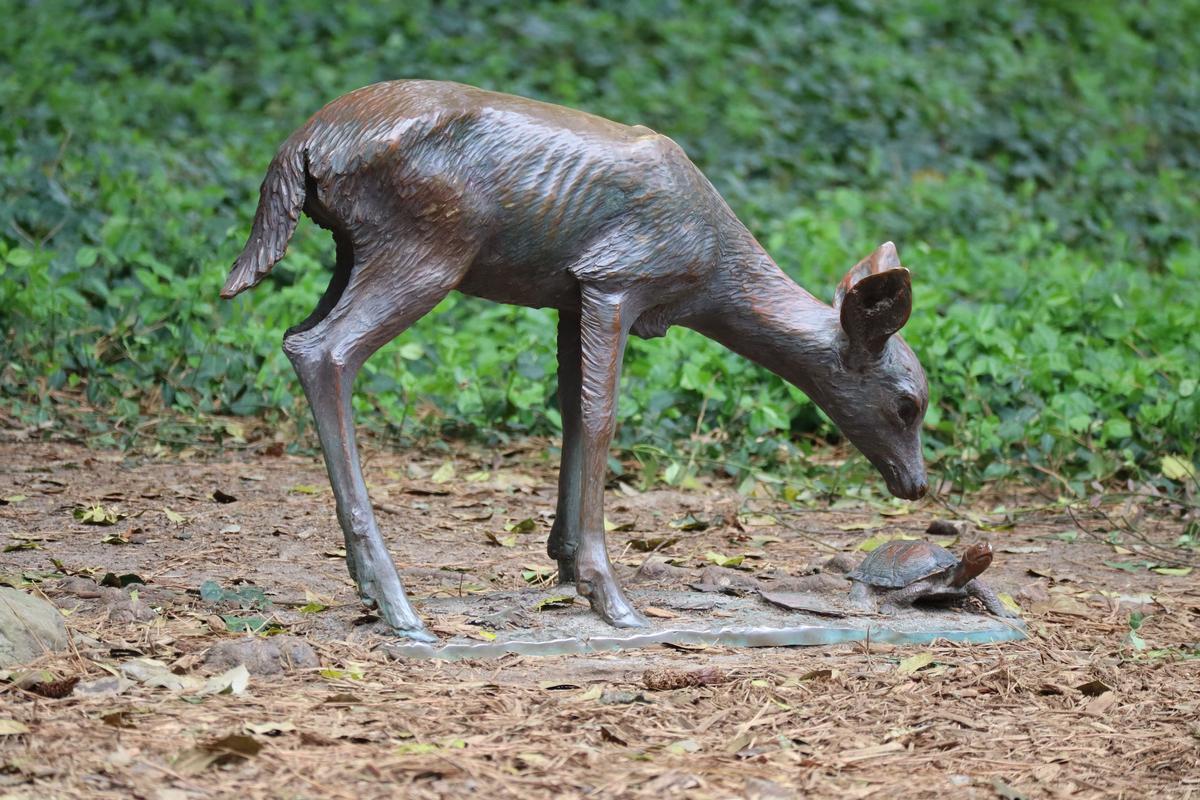
Salisbury
We absolutely love Salisbury, and have been many times. Just about 30 minutes from Ocean City, I think this place makes for one of the coolest day trips (inland!). It offers culture, history, and outdoor fun so there's plenty to see and do do. I definitely thought that Salisbury is an underrated inland town that should be on the map! Best of all, if you are into sunsets over the water, you can catch one here too...over the river!
The best place to start exploring Salisbury is definitely downtown! The streets have a cool artsy vibe that's easy to enjoy.
We took some time to explore Salisbury University’s campus which has lovely landscaping, sculptures, and great community energy.
My son enjoyed the Salisbury Zoo for two hours, which was free (including free parking!). If you have kids, there's no reason to skip it! Sure, it’s small but also thoughtfully designed. You can see animals up close in a family-friendly setting, plus there's a playground for little kids.
If you are in the mood for fresh Maryland seafood, have lunch at Mogan's Oyster House. For some unique flavors, I like KOJI, serving amazing Japanese and Korean dishes.
My favorite highlight was watching the sunset over the rived at Brew River right from the river dock.
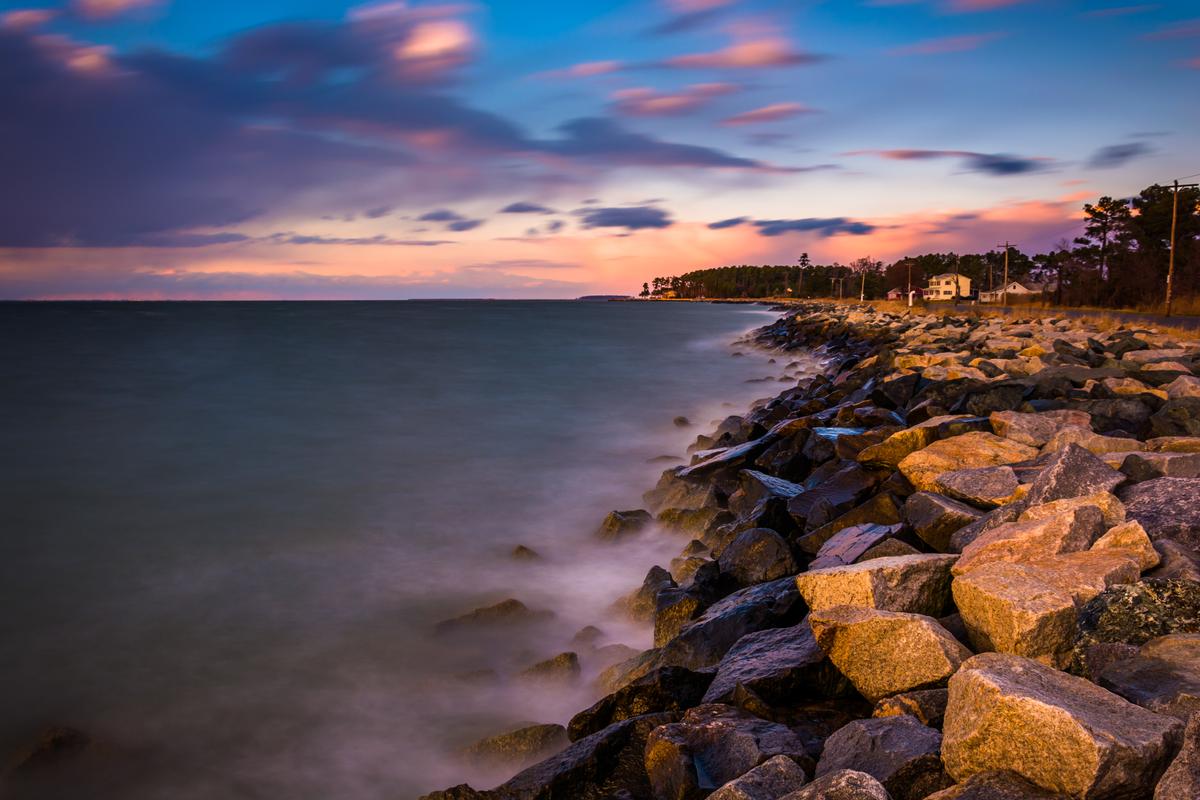
Wylder Hotel on Tilghman Island
This hotel on Tilghman Island, Maryland, is one of my favorite Chesapeake Bay vacation ideas. Why? First off, I love that it has a laid-back, coastal vibe. In addition, the hotel sits right on the water, so relaxing in an Adirondack chair by the bay, watching sailboats and sunsets was a real standout.
We drove 1 hour 50 minutes southeast from Baltimore onto Tilghman Island at the tip of the Chesapeake Bay. I instantly thought our journey was worth it!
Our Bungalow King room for four days at Wylder Hotel was bright and cozy, with nautical-inspired décor, comfortable bedding, and a balcony.
I especially loved the sense of community, with fire pits, hammocks, and open lawns that made it easy to relax.
The location is another plus, just a short drive from St. Michaels, yet far enough to feel like a peaceful island escape.
What I loved best:
My favorite highlight was dining on fresh local seafood, especially the oysters and crab, served right on the property.
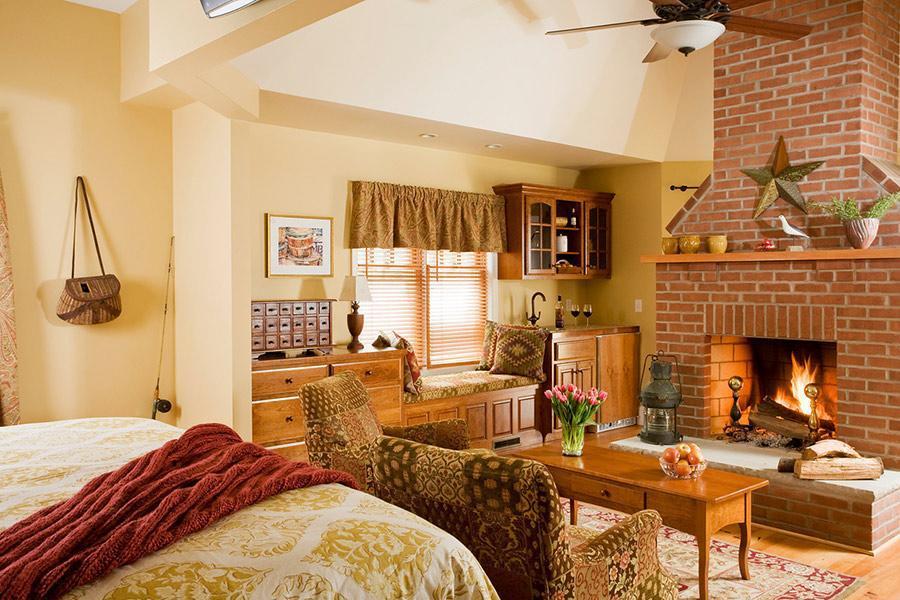
Brampton Inn, Chestertown
I thought that this inn was one of the best romantic getaways on the Eastern Shore, also perfect for a quick small-town honeymoon. Why? I love that the inn is set on 35 acres of gardens, meadows, and woodlands, where we enjoyed our morning walks in such a peaceful setting.
I drove 1 hour 35 minutes from Baltimore to Chestertown, a colonial port town on the Chester River. You can go on a walk along the brick-lined streets of the historic district, visit Washington College’s leafy campus, and a stop at the Garfield Center for the Arts.
Our lovely room for two romantic days at Brampton Inn (in the historic 1860s manor house!) had a fireplace, canopy bed, and a soaking tub.
I especially loved the little details, like homemade cookies in the afternoon.
To book, check availability or prices for Brampton Bed & Breakfast Inn.
What I loved best:
My favorite highlight was the gourmet breakfast each morning because it was fresh and locally inspired.
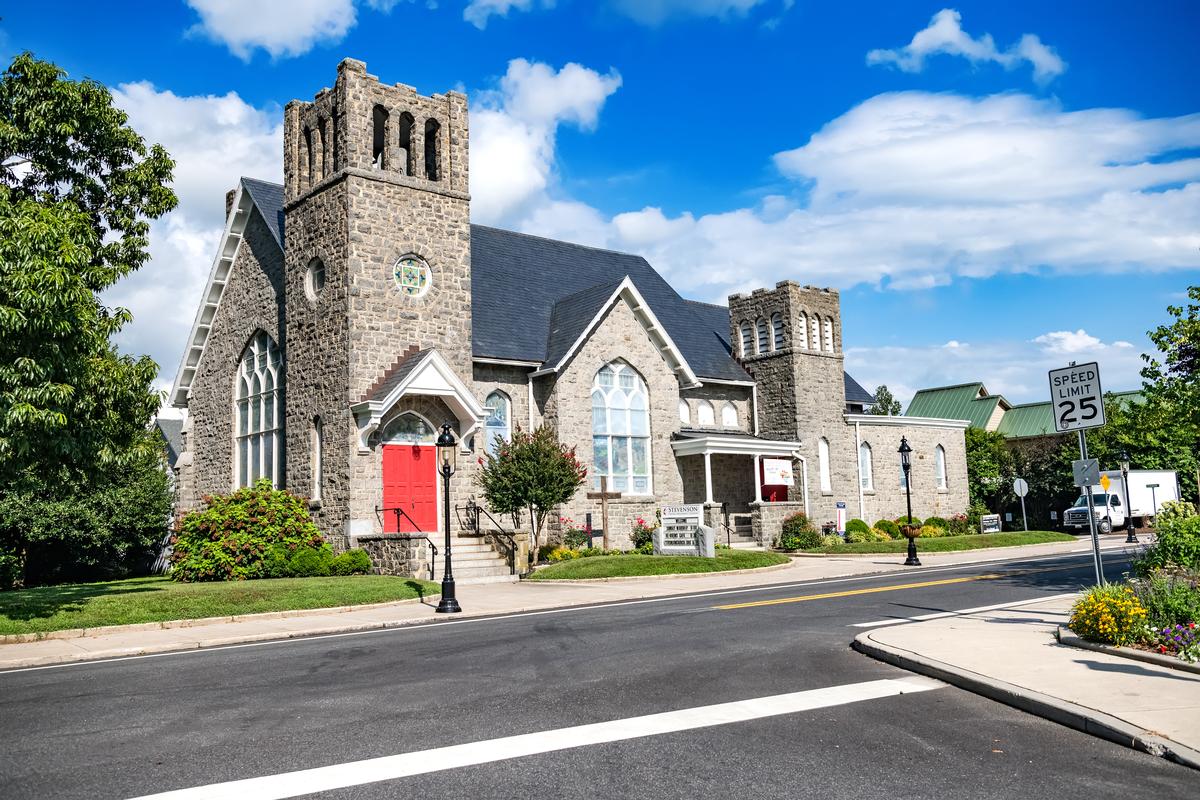
Berlin
I found this to be one of the most charming small towns and one of the best places to visit on the Eastern Shore, an excellent road trip about 2.5-hours from Baltimore. Why? First off, I loved this storybook place with tree-lined streets, and Victorian architecture. In addition, downtown was brimming with quirky shops, art galleries, and cozy cafés.
We browsed downtown shops, stepped inside the stately Atlantic Hotel (a centerpiece since 1895), and wandered through tree-shaded neighborhoods with 19th-century homes.
My personal highlight was an amazing an Original Veggie Burger ($11.75( at Blacksmith Bar & Restaurant where are refueled for lunch.
Ending my days with sunset walks past the city’s murals and twinkling lamplights was my personal highlight.
Need a place to stay? Check out Shore Point Cottages (from $109/night).
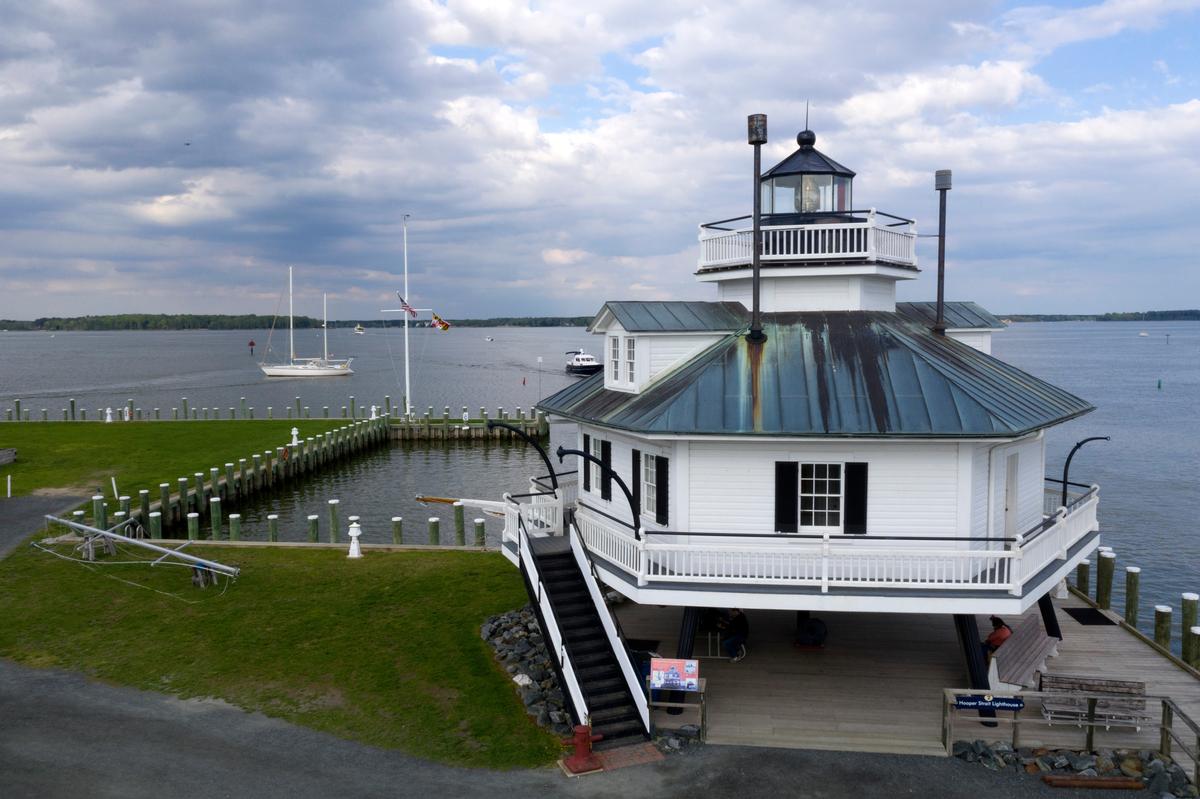
St. Michaels
For me, this was one of the most idyllic waterfront towns on the Chesapeake Bay (approximately a 1.5-hour drive east from Annapolis). I enjoyed harbor views, and colonial architecture on my getaway with my romantic weekend getaway with my husband.
We toured the fascinating Chesapeake Bay Maritime Museum with its preserved lighthouse, and explored art-filled galleries and shops along Talbot Street.
I loved that St. Michaels was such a cool destination for foodies. We had great seafood at Ruse and Foxy's Harbor Grille, stopped for cheeseburgers at Carpenter Street Saloon, and a great French onion soup at Bistro St. Michaels. I have to warn you, though, that parking can be a challenge!
We stayed two nights at the 5-star waterfront Inn at Perry Cabin.
Best Places to Visit in Upper Chesapeake Bay & Northeast Maryland
I’m especially drawn to the Upper Chesapeake Bay and Northeast Maryland when I'm in the mood for a quiet vacation.
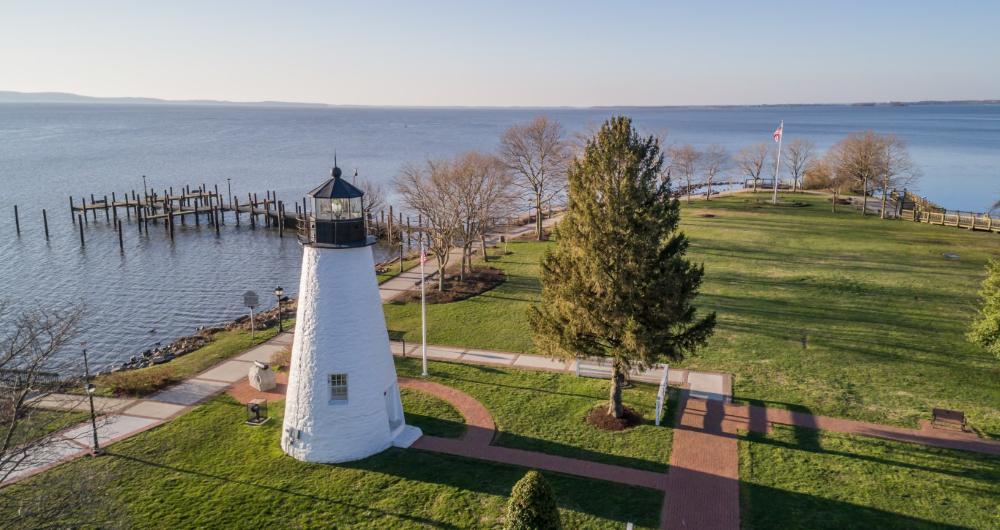
Havre de Grace
In the mood for a waterfront weekend trip? Havre de Grace was a standout! I loved it maritime history, boardwalks, and the old-fashioned Main Street. I admired the lighthouses, sailboats, and tree-shaded streets lined with 19th-century homes.
I walked down the Havre de Grace Promenade for 2 hours, (a mile-long boardwalk along the shoreline), toured the Concord Point Lighthouse (the oldest continually operating lighthouse on the Bay!), and explored the Decoy Museum.
Browsing antique shops and art galleries downtown was my favorite highlight. In addition, I lover our lazy afternoon watching herons and egrets along the marshes.
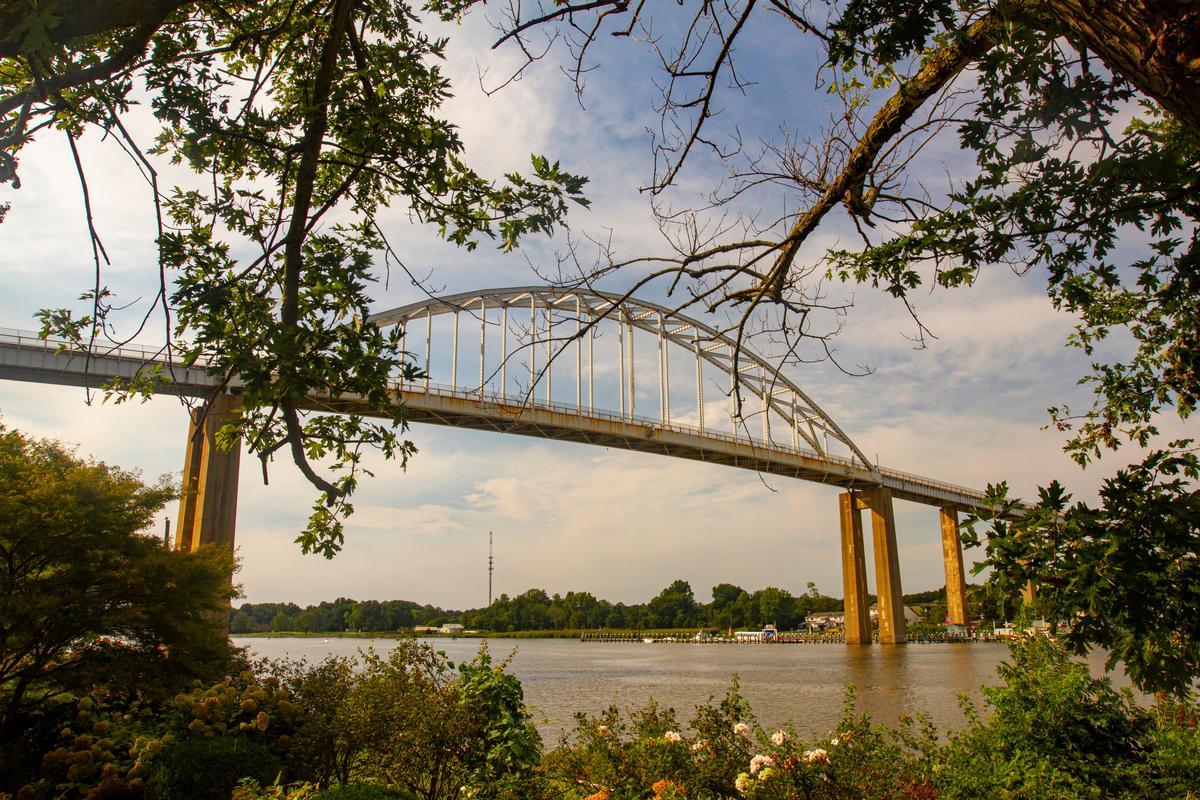
Chesapeake City
This is one of my favorite places to visit because it offers such a peaceful waterfront atmosphere. In addition, it’s easy to get to (just 2 hours from DC!), yet it feels wonderfully removed from the noise of everyday life. I especially love coming here in the fall when the air turns crisp, the canal views are gorgeous, and the little shops and cafes feel extra cozy (and much less crowded than in the summer!).
Chesapeake City is just 30 minutes from our last stop in Havre de Grace, close enough that you can easily visit both towns on the same trip!
We strolled along the waterfront promenade, toured the C&D Canal Museum to learn about this vital 19th-century waterway, and browsed shops and galleries along Bohemia Avenue.
We ended our evenings watching the lights of passing ships reflect on the canal, my personal highlight. I also enjoyed the views from Pell Gardens.
Dinner at Chesapeake Inn Restaurant & Marina capped off the day, with hearty dishes (go for the house made pasta) served in a warm setting that made us feel right at home.
My Favorite Places to Visit in Central Maryland / DC Suburbs
I absolutely adore these places where you can I can explore historic streets, enjoy waterfront scenery, and dive into great food all in the same day on an easy day trip from D.C.
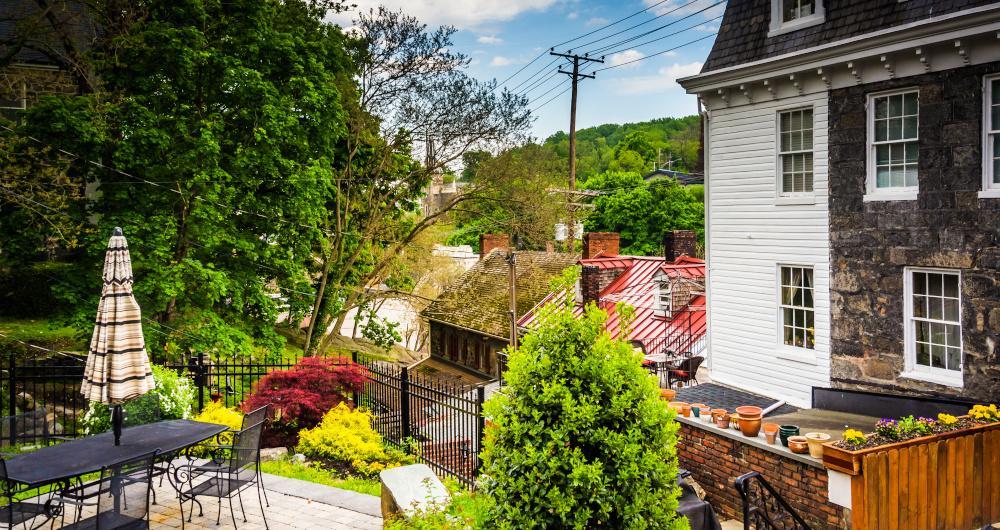
Ellicott City
I immediately thought that this was one of Maryland’s most atmospheric historic towns when I moved to the East Coast. Since there are heaps of things to do here, we decided to join a guided tour with a local guide on our first visit which was a great idea.
After just a 25-minute drive west on our day trip from Baltimore, I arrived in a town that felt timeless and full of character. We browsed antiques and quirky shops along Main Street, stepped inside the B&O Railroad Museum: Ellicott City Station (the oldest surviving railroad station in the U.S.!), and admired the craftsmanship of the Thomas Isaac Log Cabin, a preserved 18th-century home. I also walked along the scenic Patapsco Valley State Park trails, where we had a perfect family day out.
Ending my evenings with live music and a glass of local craft beer at The White Oak Tavern was my favorite highlight.
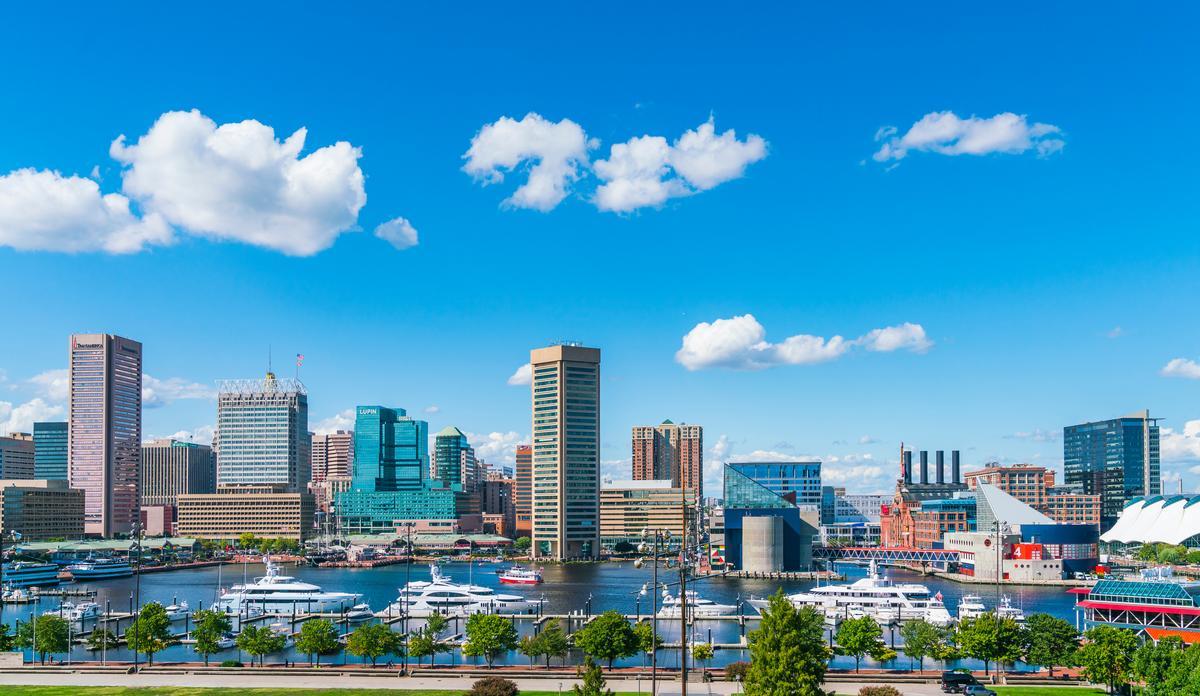
Baltimore
After about a 45-minute drive northeast from Annapolis, I arrived in my second favorite city in Maryland - a place that felt dynamic, layered, a city deeply rooted in history but constantly reinventing itself.
I strolled along the brick-lined Thames Street, toured the historic ships in the Inner Harbor, and explored the Baltimore Museum of Art. I also made a stop at the Frederick Douglass–Isaac Myers Maritime Park, honoring African American maritime heritage.
If you are short on time, don't miss tasting famous Maryland crab cakes at Costas Inn!
Admiring the ornate Peabody Library, often called one of the most beautiful in the world, was my favorite highlight.
Need a place to stay? For a luxury stay, check out the chic 5-star Sagamore Pendry Hotel in Fell’s Point.
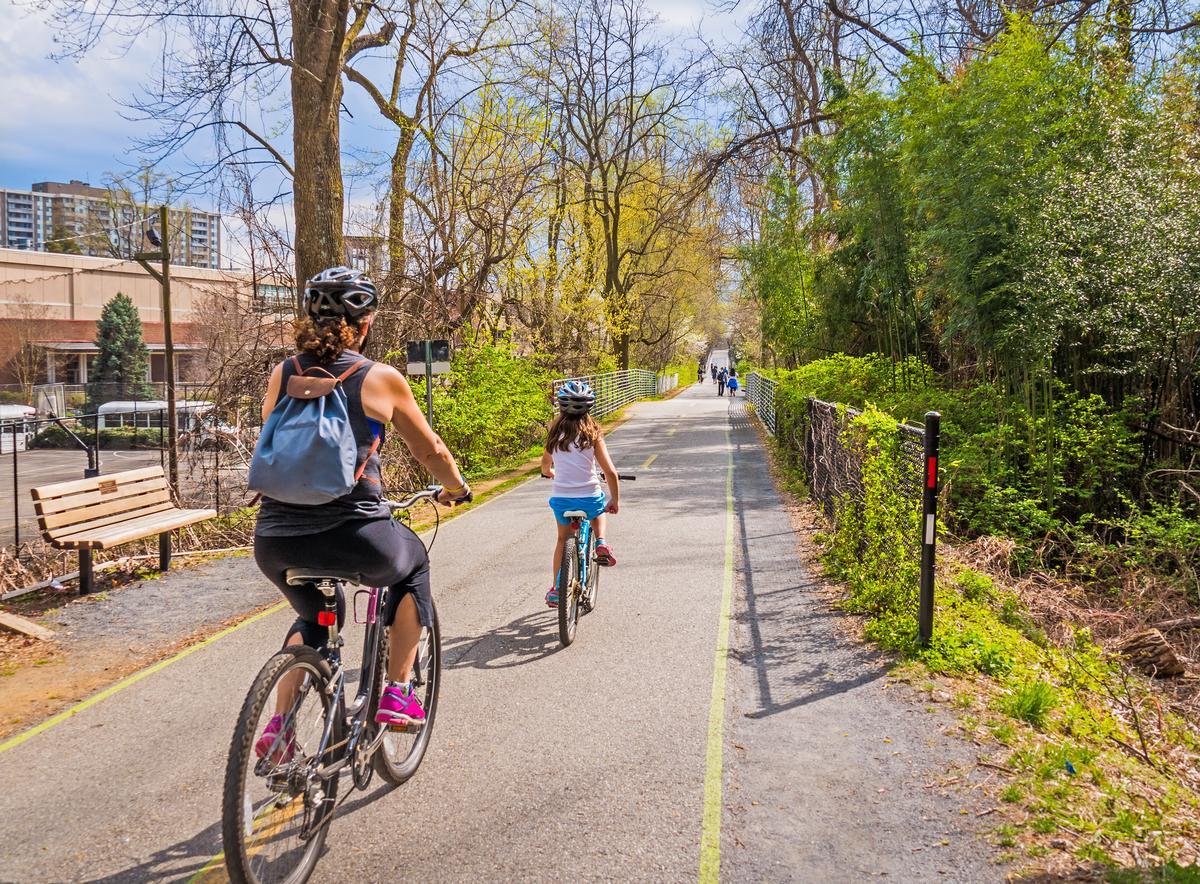
Bethesda - 30 minutes from D.C.
This is one of my favorite places for a fun family day trip in Maryland. Why? First off, is't just 25 minutes outside Washington, D.C. so I can drive there and hit a reset button in no time. In addition, although it’s so close to the D.C., it totally feels like its own unique destination in a way that completely won me over.
My personal highlight was watching my son play at KID Museum - there's coding, robotics, woodworking, textiles...you can let your kids play here all day!
My son loved to run along Bethesda's Capital Crescent Trail where I enjoyed the shaded paths.
Downtown Bethesda has cool cafes, boutiques, and restaurants - It’s the kind of spot where I can sip coffee in the morning and enjoy a gourmet meal in the evening without leaving the same block.
Bethesda Row with its shops, galleries, and eateries, was the heartbeat of the town. I could easily spend hours at this underrated urban gem hidden in the suburbs. A great spot for soups and salads along Bethesda Row is maman.
Snacks from French Press which we ate later outdoors were my personal highlight.
Best Weekend Getaways in Southern Maryland
With views of the Chesapeake Bay and the Potomac River, I love how this region feels deeply peaceful, plus it's deeply rooted in history.

Waldorf
This community in Charles County is one of my favorite places to visit in Maryland when I’m craving good food, quiet parks, and a relaxing pace.
I caught a commuter bus from Washington, D.C. to the "Little Vegas" (about 50 minutes, $7). We explored the Dr. Samuel Mudd House Museum just outside of town, and took a scenic drive to Chapman State Park on the Potomac for peaceful river views.
Walking through Regency Furniture Stadium (home of the Southern Maryland Blue Crabs baseball team) was my favorite highlight.
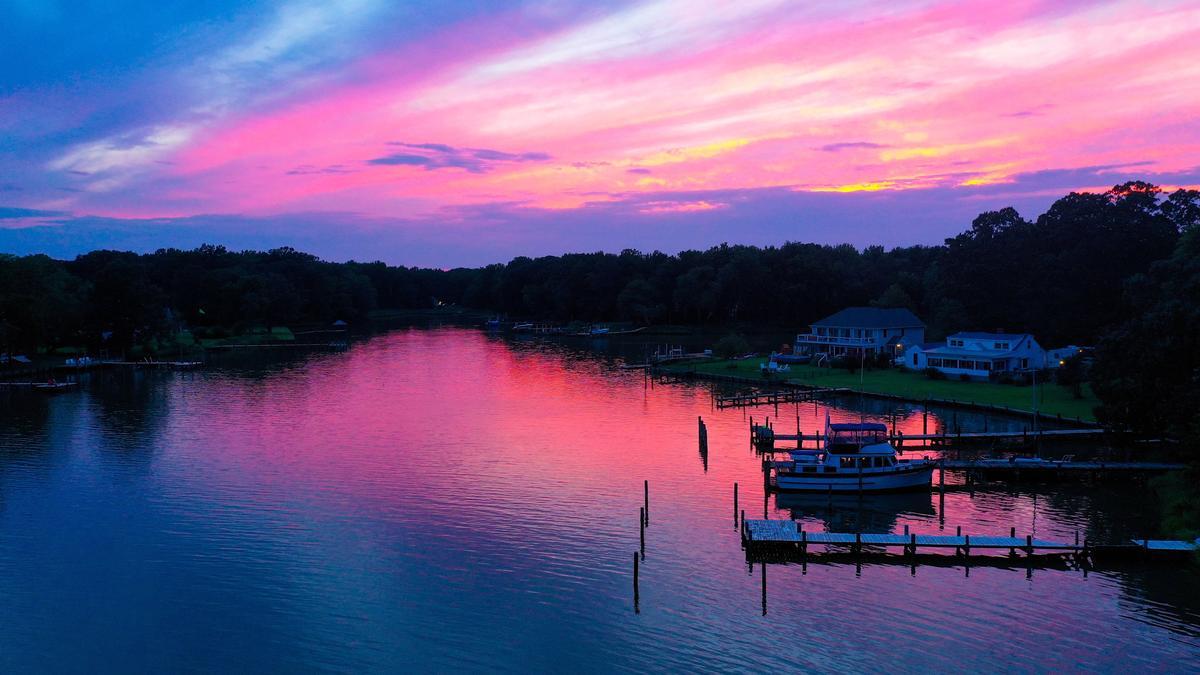
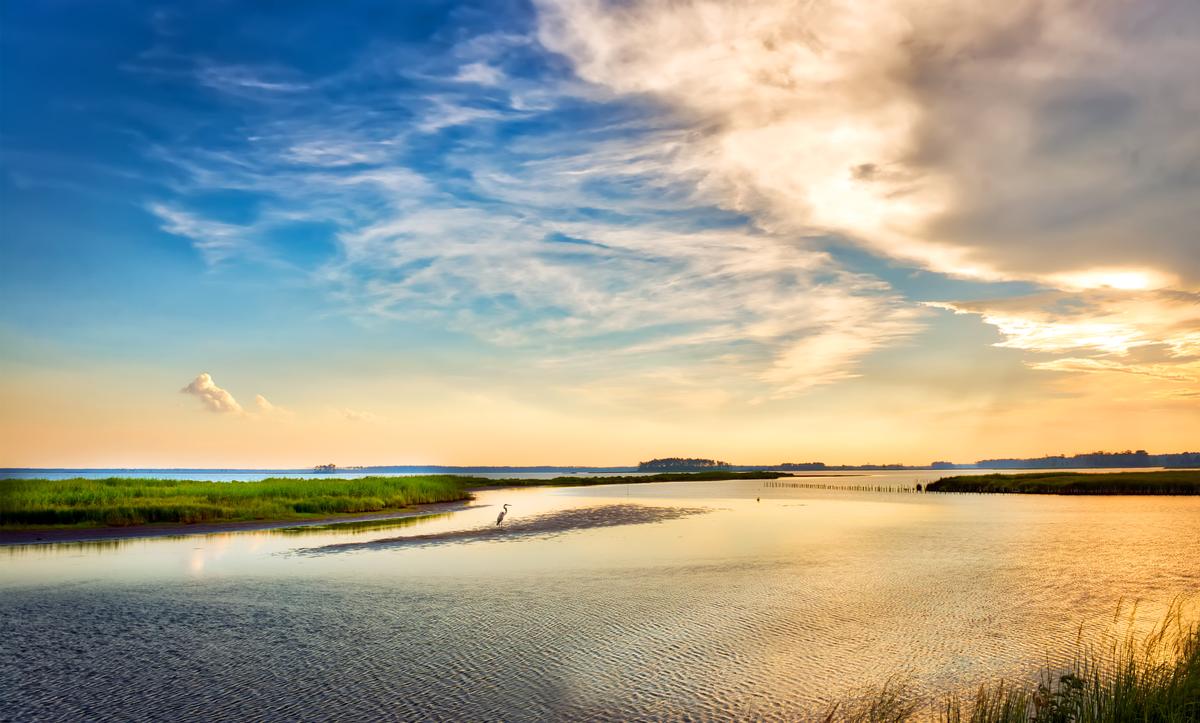
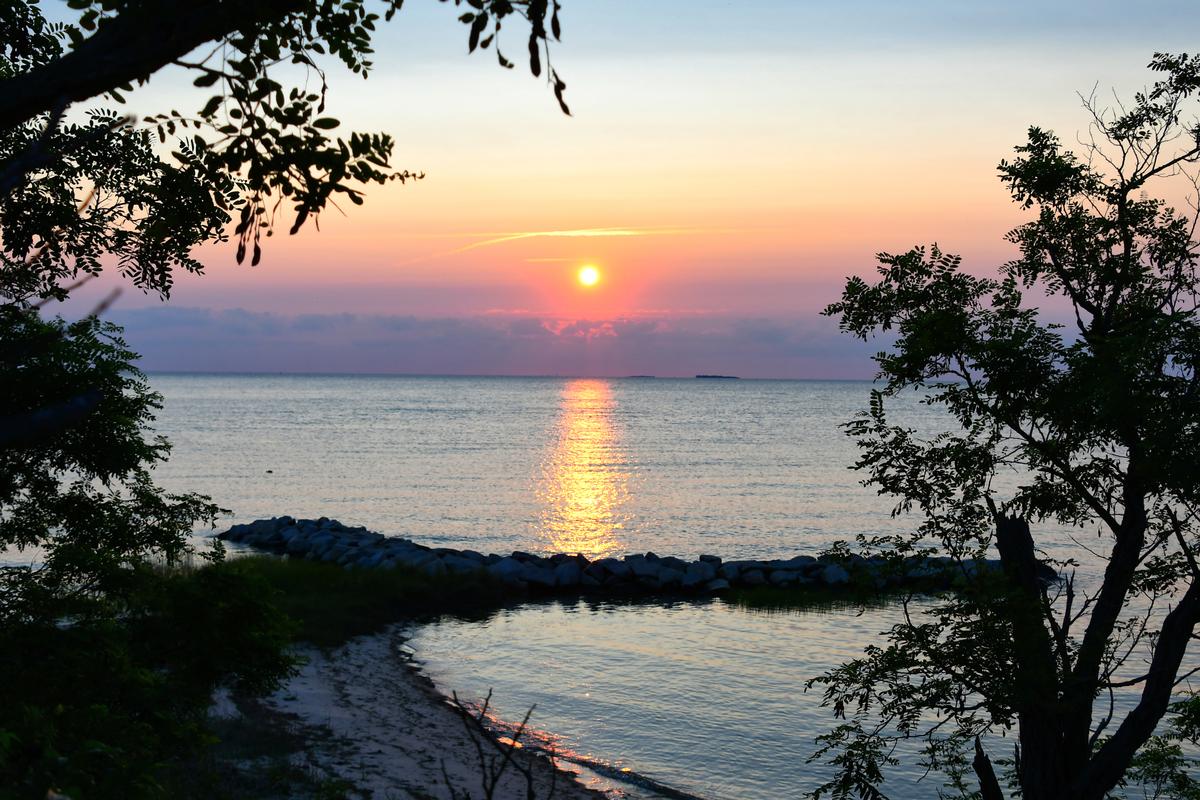
Chesapeake Beach
I thought that this location was one of the best day trips in Maryland when I moved to the East Coast. Why? We loved that it's close to both DC and Annapolis. In addition, it offers an incredibly relaxing setting.
The views of the Chesapeake Bay are so relaxing here - the salty air, the sound of seagulls made me want to stay all day.
If you are feeling active, hike along the Chesapeake Beach Railway Trail, which winds through marshes and wetlands. It's so peaceful there!
I always enjoy a good seafood meal on my weekend trip, and Chesapeake Beach delivers. We grabbed a table at Baia Coastal Italian Kitchen & Wine Bar which had incredible ocean views and serves great seafood.
For a bit of fun, we also stopped by the Chesapeake Beach Water Park. You should try it in the summer, your kids will thank you.
We ended the day watching the sunset over the Bay which was my personal highlight.
We stayed at 4-star Chesapeake Bay Beach Club & Spa for two days. I kicked off my weekend with a 60-minute classical massage at the hotel spa which was totally worth it!
Best Day Trips in Western Maryland
These are my favorite places to visit in Western Maryland for their character, history, and outdoor fun with Chris and our son.
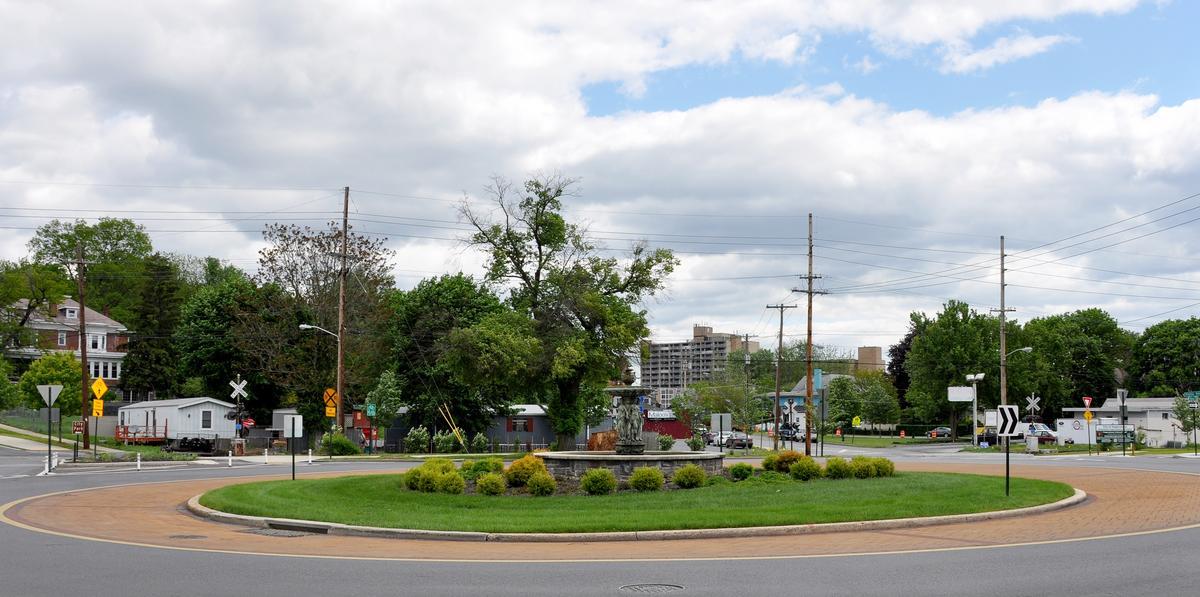
Hagerstown
I think this is one of the best delightful small cities on the East Coast (inland!), with lots of natural countryside surroundings. Hagerstown is located in the lush Hagerstown Valley and ringed by the Blue Ridge and Allegheny Mountains
After about a 1.5-hour drive northwest from Baltimore, I arrived in a place with leafy neighborhoods, handsome Victorian homes, and a walkable downtown sprinkled with historic brick buildings, cozy cafés, and local shops.
We explored the fascinating Washington County Museum of Fine Arts in City Park, strolled along the tree-lined Hagerstown Cultural Trail connecting art installations to the arts district, and took a moving day trip to nearby Antietam National Battlefield.
My personal highlight was a leisurely walk through the charming Jonathan Hager House and Museum, the stone home of the city’s founder.
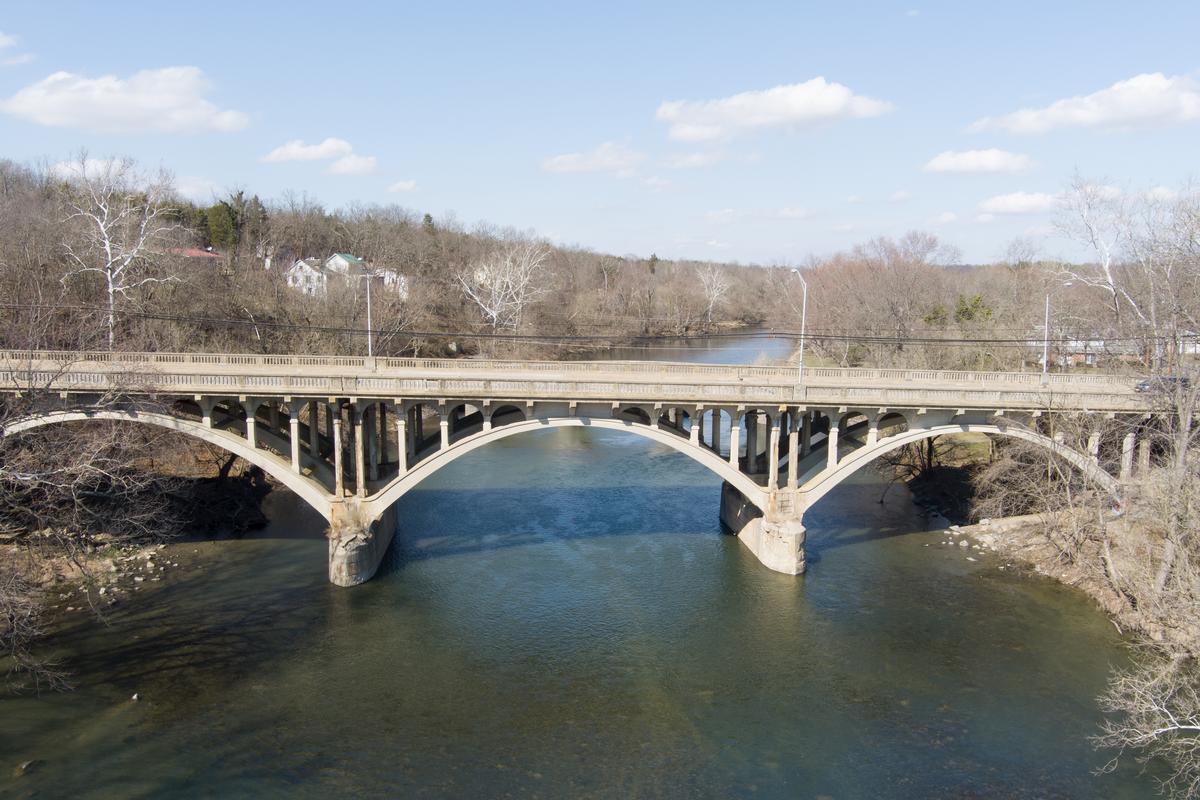
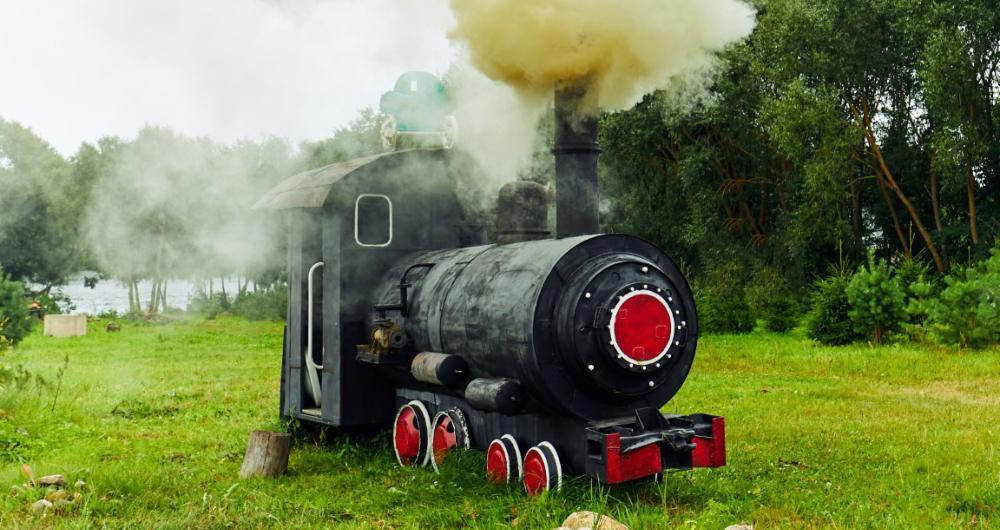
Cumberland
This Maryland town is one of my favorite places to visit when I want a peaceful retreat with plenty to explore. Known as the “Queen City” of Maryland, Cumberland has a rich transportation history.
We explored the Western Maryland Scenic Railroad, strolled thought the Historic City Center Mall, and admired local art at the Cumberland Arts District, my favorite on this road trip.
After about a 2-hour drive west from Hagerstown, we checked into the affordable Rocky Gap Casino & Resort (from $79/night) for the night.
For me, Cumberland is one of the best places to visit in Maryland because it's historic and unique!
Wandering through the Allegany Museum, which traces the region’s cultural and industrial story, was my favorite highlight.
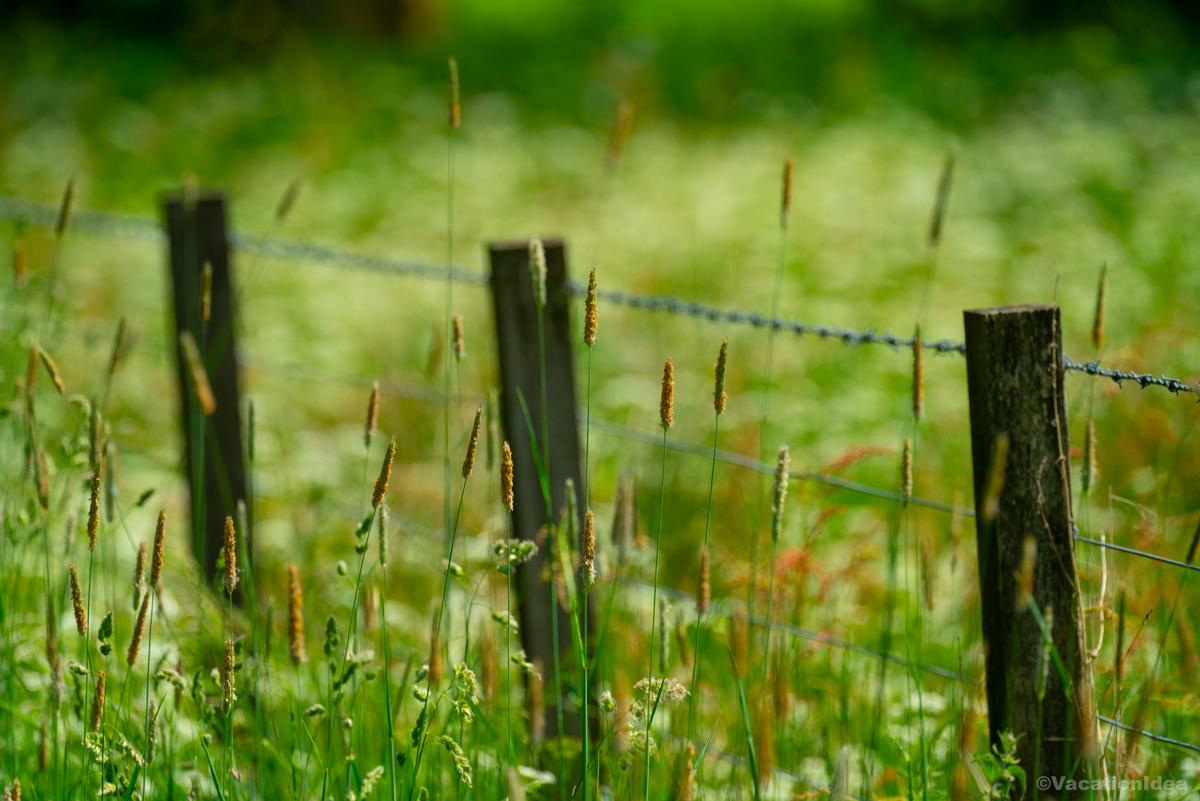
Booking Checklist
1. Book Your Flight - I use Expedia because I like their mobile app with my itinerary. They've helped me re-book flights on many occasions. Once you reach their Gold tier, support is especially good.
2. Book Your Hotel - I use Booking.com or Expedia, depending on my destination.
3. Book Your Rental Car - I use Expedia.
4. Book your tours on Viator or Get Your Guide.
5. If you are planning to visit more than three national parks in the next 12 months, we've found that buying the America the Beautiful Pass is cost effective.
